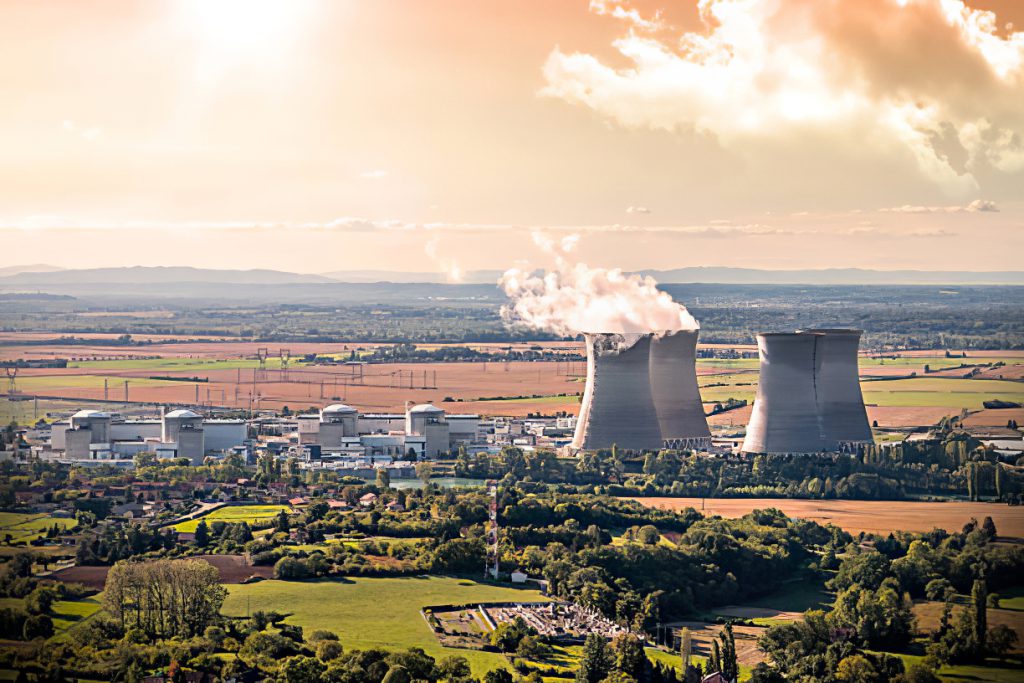France aims to retain leadership in global uranium mining

By Eugene Gerden
France, the world’s leading country in nuclear power, plans to retain its leadership in the global market into the future through the acceleration of building of new nuclear power capacities throughout the world and development of uranium projects.
Since the early 1960s France has achieved success by developing its nuclear power industry. At present, the country operates more than 60 nuclear power units, which together produce more than 400 billion kWh annually, or more than 75% of the total electricity generated in France. The industry provides local customers with electricity at prices significantly lower than in any other country in the EU.
In addition to the domestic market, a significant of part of electricity produced by French nuclear power plants is exported to neighboring countries, including Italy, Switzerland, Belgium, the United Kingdom, Spain and others.
France’s nuclear success is also due to stable supplies of uranium for its power plants. As France itself has limited uranium reserves (primarily concentrated in Limousin, Morvan, Fore-Madeleine in the Central French massif and the Vendee regions of the country), most of the country’s uranium needs has been met mainly from Africa, in particular, its former colonies.
In recent years demand for nuclear energy has recovered both in France and globally (being reflected by recent commissioning of new nuclear power plants in China, Russia and other countries). The level of competition in the global uranium market has also tightened.
France and its flagship uranium producer, Orano Corp., (a company which was initially established in 2017 as a subsidiary of Areva S.A. following a restructuring process) may face serious competition from global uranium producers.
Such competition is expected to come from major Chinese and Russian uranium producers that have recently announced plans for further expansion in Africa.
In the case of Russia, in recent years the country has significantly strengthened its nuclear power sector in Africa and is planning further expansion in the future. For example, Russia’s nuclear monopoly, Rosatom, involves the building of the El Dabaa nuclear power plant in Egypt and a nuclear science and technology centre in Zambia.
According to sources in the Russian Ministry of Energy, its interests include starting development of some of Africa’s largest uranium regions that will be an important source of raw materials for Russian nuclear power projects.
As part of this, the biggest interest of Russians may be related to uranium expansion in Niger, a former territory of France, which received its independence in 1960. Niger, located in the Sahara, hosts rich uranium-bearing deposits. Most of them were initially discovered by French geologists (who were searching for copper in 1957) and are located in the central provinces of the country (such as Agadez, Tahua and elsewhere).
So far, most of the local uranium mining has been under a control of Orano, which has carried out its operations through its joint ventures with local players such as SOMAIR and COMINAK; however, there is a possibility that domination of the company in the region may come to an end.
At present, the list of the most promising uranium fields in Niger consists of Arlit, Tagora, Artois and Tamou, as well as Imouraren, which is considered to be one of the most important and promising uranium projects in Niger.
Despite the fact that reserves of most of local uranium deposits have almost been exhausted, reserves at the Imouraren mine, located 160 km north of Agadez, are such that the mine would still be producing 5,000 tonnes per year of uranium for the next 25 years. That exceeds the overall volume of uranium production in Niger at present.
According to local media reports, Orano is expected to be not the only bidder for development of the Imouraren mine as interest has been expressed by investors in China and Russia.
In general, according to current estimates, Niger ranks fifth in the world in terms of uranium reserves (with the reserves in the range of 404,000 to 421,000 tonnes).
In the meantime, another West African nation, Mali, may become another battleground for global uranium producers within the next decade.
While there is currently no reliable information about uranium ore reserves in Mali, which hampers the start of large-scale uranium mining in the country, most analysts consider it as one of the most promising regions for uranium mining in Africa.
